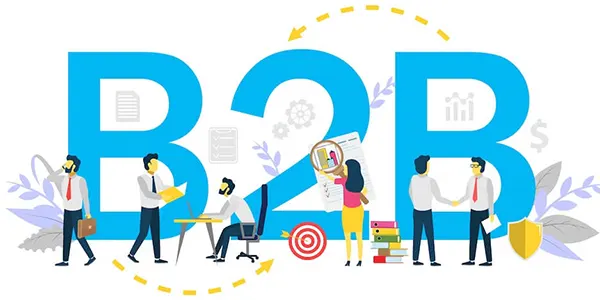
Partner Marketing in B2B: How to Build a Successful Affiliate Programme
Partnership marketing plays a pivotal role in the modern B2B landscape, offering a scalable way for businesses to reach new audiences, boost trust, and increase conversions. Unlike traditional advertising, affiliate marketing in B2B thrives on long-term relationships and measurable outcomes. Crafting an efficient affiliate strategy requires not only the right tools but a deep understanding of collaboration dynamics between companies.
Key Elements of an Effective B2B Affiliate Programme
Designing a successful affiliate programme begins with a clear framework. First, identify the ideal partners: these could be complementary service providers, consultants, or even content creators who engage your target clients. Once you know who to recruit, define the terms of collaboration with precision. This includes commission structures, payment cycles, and methods of tracking engagement and results.
Transparency is essential. B2B decisions involve multiple stakeholders and longer sales cycles. That means both the affiliate and your team must maintain open communication, share progress data regularly, and adapt strategies as required. Implementing dedicated partner portals or dashboards enhances visibility and engagement across the partnership lifecycle.
It’s also critical to ensure your affiliate proposition offers real value. Affiliates in the B2B space are often driven not only by commission but also by opportunities to improve their offering, extend their influence, and build credibility. Aligning your incentives with their business goals strengthens loyalty and long-term collaboration.
Technology Infrastructure and Automation
In 2025, affiliate technology has evolved significantly, with SaaS tools like PartnerStack, Impact, and FirstPromoter dominating the B2B ecosystem. These platforms support advanced segmentation, custom commission rules, and real-time reporting. Integrating such tools allows for scalable programme growth and makes partner onboarding smoother and more intuitive.
Automation is another crucial component. Automating workflows such as approvals, lead attribution, and performance notifications helps reduce operational load. It also ensures consistency in programme delivery and eliminates manual errors that could affect trust with high-value partners.
Lastly, API integrations between affiliate platforms and CRM systems such as HubSpot or Salesforce are vital. These connections allow for comprehensive attribution tracking, better lead nurturing, and a full view of affiliate-driven pipeline contributions, aligning sales and partnership departments effectively.
How to Recruit and Retain High-Quality B2B Affiliates
Finding affiliates in B2B isn’t about mass outreach. It’s about targeting niche influencers, consultants, and business networks whose audience matches your buyer profile. Build a compelling pitch—what’s in it for them beyond just the money? Consider offering co-branded resources, training, and shared success stories that appeal to their long-term goals.
Make the onboarding experience frictionless. Provide step-by-step materials, knowledge bases, and one-on-one calls if needed. Educating affiliates about your sales process, value proposition, and product nuances increases their chances of success and your confidence in the leads they bring.
Retention requires consistent engagement. Send regular updates on product improvements, sales trends, and best-performing campaigns. Create exclusive promotions for affiliates and invite them to virtual partner summits. When affiliates feel heard and included in your journey, they are more likely to stay loyal and perform better.
Performance Metrics and Evaluation
Set clear KPIs from day one. Track not just the number of referred leads but their quality—conversion rate, deal size, and sales cycle duration are essential metrics in B2B affiliate analysis. A partner who brings 10 strong leads is often more valuable than one who brings 100 weak ones.
Monthly and quarterly evaluations help identify top performers and those needing support. Offer custom coaching or strategic advice to underperforming partners and reward consistent performers through bonuses, spotlight recognition, or tier-based rewards.
Transparency in reporting fosters trust. Share detailed dashboards with your affiliates to help them self-optimise. The more insight they have into what works, the more aligned and proactive they become in refining their outreach and strategies.

Legal, Compliance and Trust in B2B Affiliates
Unlike B2C, B2B deals can involve sensitive data, strict privacy regulations, and detailed contracts. Your affiliate agreements must include clauses that address confidentiality, lead ownership, compliance with GDPR and other data protection laws. Neglecting these elements can damage your reputation and legal standing.
It’s equally important to verify your affiliates. Conduct due diligence before onboarding: check their online presence, client reviews, and any previous affiliations. Not every partnership will be suitable, and a single misstep could compromise your brand’s credibility in competitive B2B markets.
Maintain an ethical and compliant environment. Offer training on ethical sales practices, industry compliance rules, and proper brand representation. Affiliates must understand how to promote your services truthfully and in alignment with your brand guidelines. This builds trust across every touchpoint.
Security, Tracking and Data Handling
With rising cybersecurity concerns, tracking and data handling practices must meet enterprise-grade standards. Affiliate links should be secure, trackable, and resistant to manipulation. Use HTTPS tracking URLs, multi-factor authentication, and encrypted data exchange protocols where applicable.
Cookie tracking remains essential in 2025, but many browsers now limit cookies. Implement first-party tracking methods and use UTM parameters embedded in CRM systems to ensure attribution accuracy without breaching user privacy.
Data collection and storage must comply with global regulations such as GDPR, CCPA, and LGPD. Ensure that affiliates are aware of these requirements and that your platform includes consent management features and secure data handling workflows.
